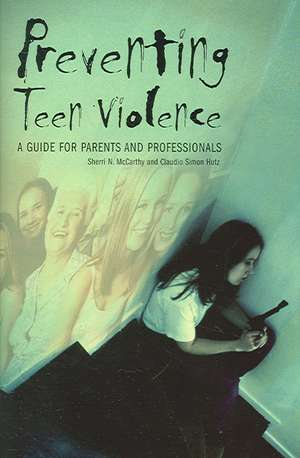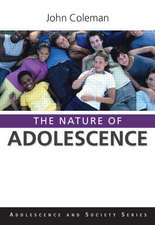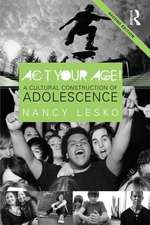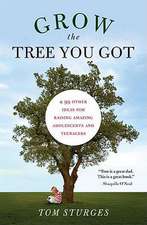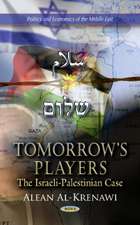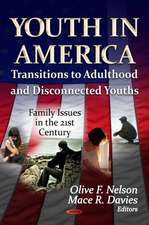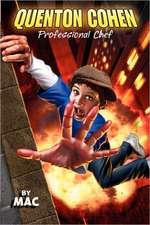Preventing Teen Violence: A Guide for Parents and Professionals: Contemporary Psychology
Autor Sherri McCarthy, Claudio S. Hutzen Limba Engleză Hardback – 29 ian 2006 – vârsta până la 17 ani
Din seria Contemporary Psychology
- 18%
 Preț: 308.13 lei
Preț: 308.13 lei - 20%
 Preț: 177.12 lei
Preț: 177.12 lei - 18%
 Preț: 320.87 lei
Preț: 320.87 lei - 32%
 Preț: 176.45 lei
Preț: 176.45 lei - 27%
 Preț: 366.92 lei
Preț: 366.92 lei - 18%
 Preț: 322.21 lei
Preț: 322.21 lei - 14%
 Preț: 361.40 lei
Preț: 361.40 lei - 27%
 Preț: 345.42 lei
Preț: 345.42 lei - 24%
 Preț: 363.98 lei
Preț: 363.98 lei - 17%
 Preț: 325.05 lei
Preț: 325.05 lei - 18%
 Preț: 357.81 lei
Preț: 357.81 lei - 14%
 Preț: 356.57 lei
Preț: 356.57 lei - 34%
 Preț: 169.88 lei
Preț: 169.88 lei - 27%
 Preț: 366.69 lei
Preț: 366.69 lei - 24%
 Preț: 366.50 lei
Preț: 366.50 lei - 27%
 Preț: 345.83 lei
Preț: 345.83 lei - 13%
 Preț: 314.58 lei
Preț: 314.58 lei -
 Preț: 194.96 lei
Preț: 194.96 lei - 26%
 Preț: 359.79 lei
Preț: 359.79 lei
Preț: 439.77 lei
Preț vechi: 605.33 lei
-27% Nou
Puncte Express: 660
Preț estimativ în valută:
84.15€ • 88.09$ • 69.63£
84.15€ • 88.09$ • 69.63£
Carte tipărită la comandă
Livrare economică 07-21 aprilie
Preluare comenzi: 021 569.72.76
Specificații
ISBN-13: 9780275982461
ISBN-10: 0275982467
Pagini: 304
Dimensiuni: 156 x 235 x 30 mm
Greutate: 0.63 kg
Editura: Bloomsbury Publishing
Colecția Praeger
Seria Contemporary Psychology
Locul publicării:New York, United States
ISBN-10: 0275982467
Pagini: 304
Dimensiuni: 156 x 235 x 30 mm
Greutate: 0.63 kg
Editura: Bloomsbury Publishing
Colecția Praeger
Seria Contemporary Psychology
Locul publicării:New York, United States
Notă biografică
Sherri N. McCarthy is Associate Professor of Educational Psychology, Northern Arizona University. She was a contributor to The Psychology of Terrorism (Praeger, 2002).Claudio Simon Hutz is Professor of Developmental Psychology, Universidade Federal do Rio Grande do Sul, Brazil.
Cuprins
PrefaceDefining Adolescence and Examining Adolescent AggressionSchool Violence: An Overview mStrategies for Educators to Prevent Youth ViolenceAggression Directed Inward: Substance-Abuse, Suicide, and Self-HarmSexual Aggression among AdolescentsAnger Management Training Strategies to Reduce Adolescent ViolenceProactive Parenting in a Changing WorldTeens, Violence, and the "3 R's": Resilience, Rehabilitation, and RecoveryIntegrating Programs and Practices to Reduce AggressionCultural Aspects of Moral Development and Impulse ControlReducing Adolescent Aggression by Developing Critical Thinking SkillsStreet Kids, Anti Social Behavior, and Adolescent AggressionPhilosophies that Foster Violence: Religious, Cultural, and Political Risk Factors
Recenzii
High-profile killings at Columbine and elsewhere have focused attention on youth violence and raised questions about how parents, teachers, and professionals in diverse cultures can understand, evaluate, and prevent senseless violence. Including illuminating cross-cultural comparisons from Brazil and Russia, McCarthy and Hutz gather essays that examine precursors of violence (e.g., attitudes and social context) and remedies (e.g., anger management, critical thinking, impulse control). The book demonstrates that aggression can be directed inward (self-harm, substance abuse) or outward. Positive parenting and developing the teen's resilience are important; reducing prejudice, channeling anger, and limiting viewing of violent media can help. Educators can foster safe schools by improving the school environment and helping teens develop a sense of responsibility, self-control, and achievement. Mentoring, building life skills, and introducing the arts into curricula are discussed as avenues to preventing aggression. Resources for school safety and violence prevention are listed. Suicide warnings are discussed briefly. Recommended. Upper-division undergraduates through faculty and professionals.
[T]his book is to be welcomed, especially since it is addressed not only at professionals but at parents.
These papers, written by McCarthy, Hutz and other experts in adolescent psychology, examine adolescent aggression from biological, psychological and social perspectives and analyze some of the contributing factors. The contributors describe symptoms and strategies in a way that can be understood and adapted by parents, schools, social service agencies, and criminal justice institutions. Specific topics include substance abuse, suicide and self-harm, sexual aggression, anger management and impulse control, gang violence, and increasing critical thinking skills.
[T]his book is to be welcomed, especially since it is addressed not only at professionals but at parents.
These papers, written by McCarthy, Hutz and other experts in adolescent psychology, examine adolescent aggression from biological, psychological and social perspectives and analyze some of the contributing factors. The contributors describe symptoms and strategies in a way that can be understood and adapted by parents, schools, social service agencies, and criminal justice institutions. Specific topics include substance abuse, suicide and self-harm, sexual aggression, anger management and impulse control, gang violence, and increasing critical thinking skills.
